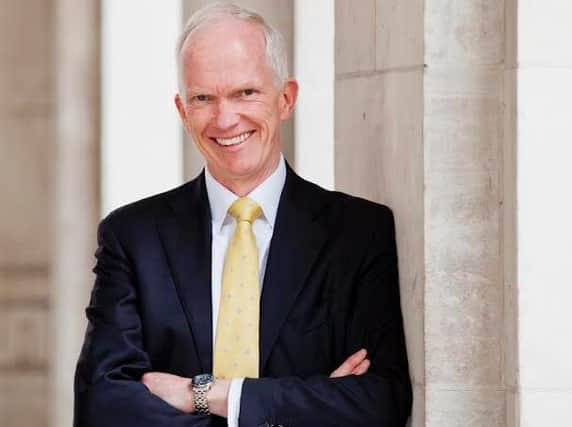SME’S forge ahead despite the Brexit mood music


Yet with the prospect of an economic downturn creeping up on a seemingly unsuspecting Westminster, there is good reason to believe the UK can avoid the damning climate that has gripped the nation if the Brexit blinkers come off and we act now.Despite prolonged political and economic uncertainty, research from BGF - the world’s most active investor in growing companies - this week has found more than 13,000 small and medium-sized enterprises (SMEs) in Britain – 83 per cent of whom are outside of London – have experienced combined revenue growth of £44bn over the last three years. That may be a surprise to some. It iscertainly impressive.Sadly, the business narrative has been tainted by negativity and tiresome pessimism since the Brexit vote in June 2016, yet whilst big business is losing confidence, nobody has told the SMEs.Three-quarters of these businesses have grown their turnover in the three years up to January 2019, and two-thirds are still actively hiring – collectively creating over 1,000 jobs every week to add to the 2.5 million they already employ.Yorkshire is one of the top five regions in the UK for the number of small-to-mid sized firms growing in employees; East Riding alone has the second largest proportion of companies looking to take on more staff, while in West Yorkshire we see the second highest concentration of businesses of this size in the whole country.This group of SMEs form the backbone of the economy. They are experiencing the fastest rate of disruption in history and an unprecedented level of uncertainty in post-war Britain. What we’re also seeing though is that the majority are rising to the challenge and finding opportunity amidst the chaos, especially those outside the capital.For too long the London scene has crowded out the rest in attention, missing the bigger growth opportunity nationwide. They know that now is the time for pragmatism. Those who stand still and wait for the storm to blow over will drown, while those who forge ahead, continuing to innovate and actively looking to grow will not only survive, but thrive.All eyes are on Brexit and from the global markets’ perspective, rightfully so. But if businesses are not to down tools on their expansion plans, then it is incumbent that the investors don’t either.These are times of change, but how you deal with change is a choice. It’s critical for national prosperity, that we deploy more growth capital, and step forwards alongside the entrepreneurs to back business. Equally important, the banks must keep the supply of working capital flowing, which is the oxygen of the economy.Legacy means nothing when it comes to surviving the future. The future is about finding new success stories, with an appetite for disruption and a desire to win, not clinging on to past glories. Returning to 2007, we saw another legacy fade away with Leeds United relegated to the third tier of English football for the first time. Bankrupt, the club went into administration and for a while, its survival seemed unlikely.And yet, like Britain’s SMEs, Leeds have rallied and risen from the ashes, now on the verge of a return to the Premier League.Why? Because for the first time in almost two decades, rather than just throwing good money after bad and thinking nostalgically of Don Revie and Howard Wilkinson, the club’s owners have a vision for the future. They are investing sensibly, and innovating with one of football’s most disruptive managers.This is the key difference between the approaches of 2007 and those of 2019. No longer do businesses glorify what came before, they have eyes for the future, even if it’s an uncertain one.Many of the industries of the future are yet to be created. That could be in AI, synthetic biology, or it could be more traditional businesses reinventing themselves or leading a wave of consolidation.Entrepreneurs are often called disruptors for a reason. They don’t stand still, they act.The SMEs of today demonstrate that regardless of the political turmoil, we remain a nation powered by brilliant businesses, with firms across Britain and Ireland delivering the extraordinary, every single day.